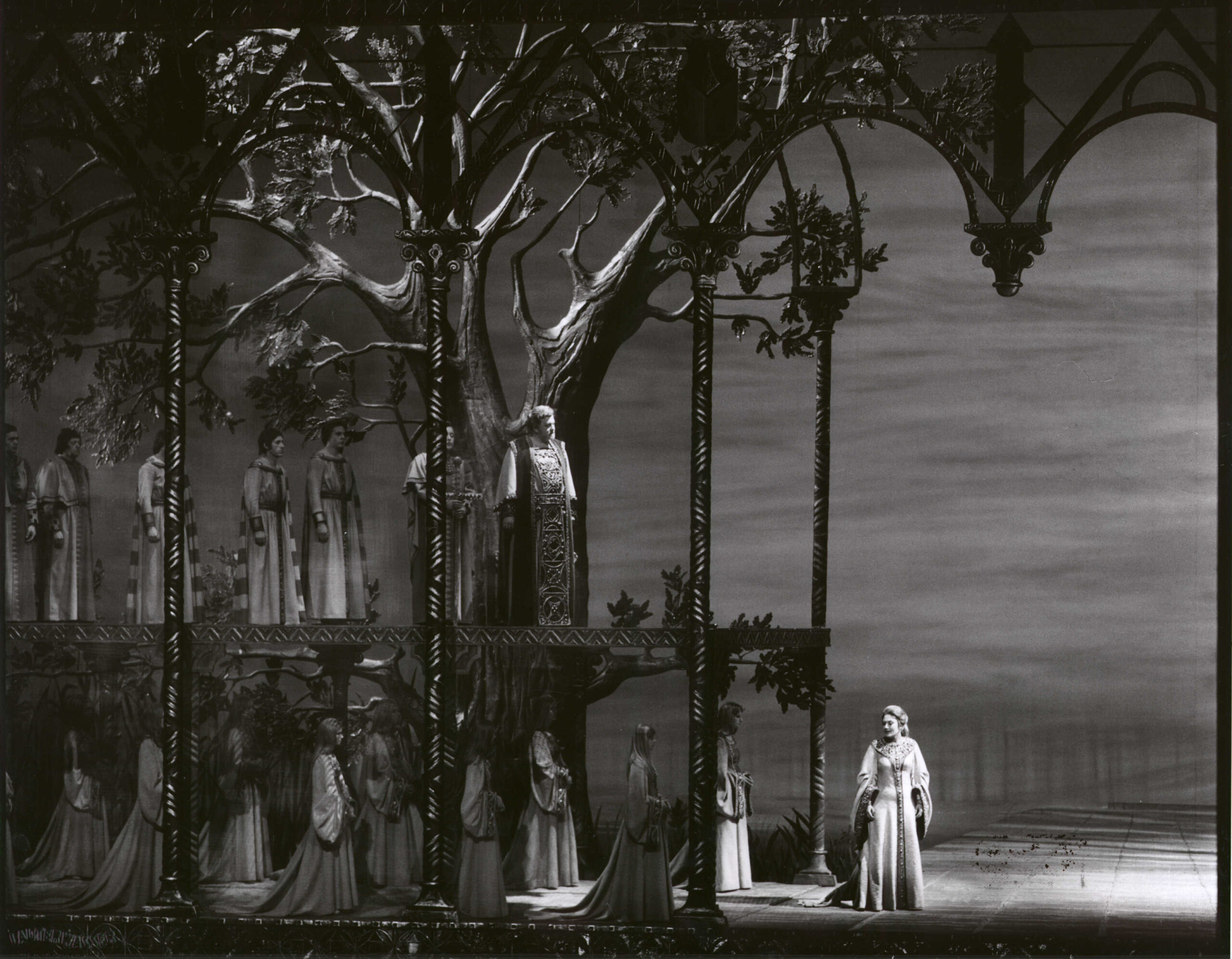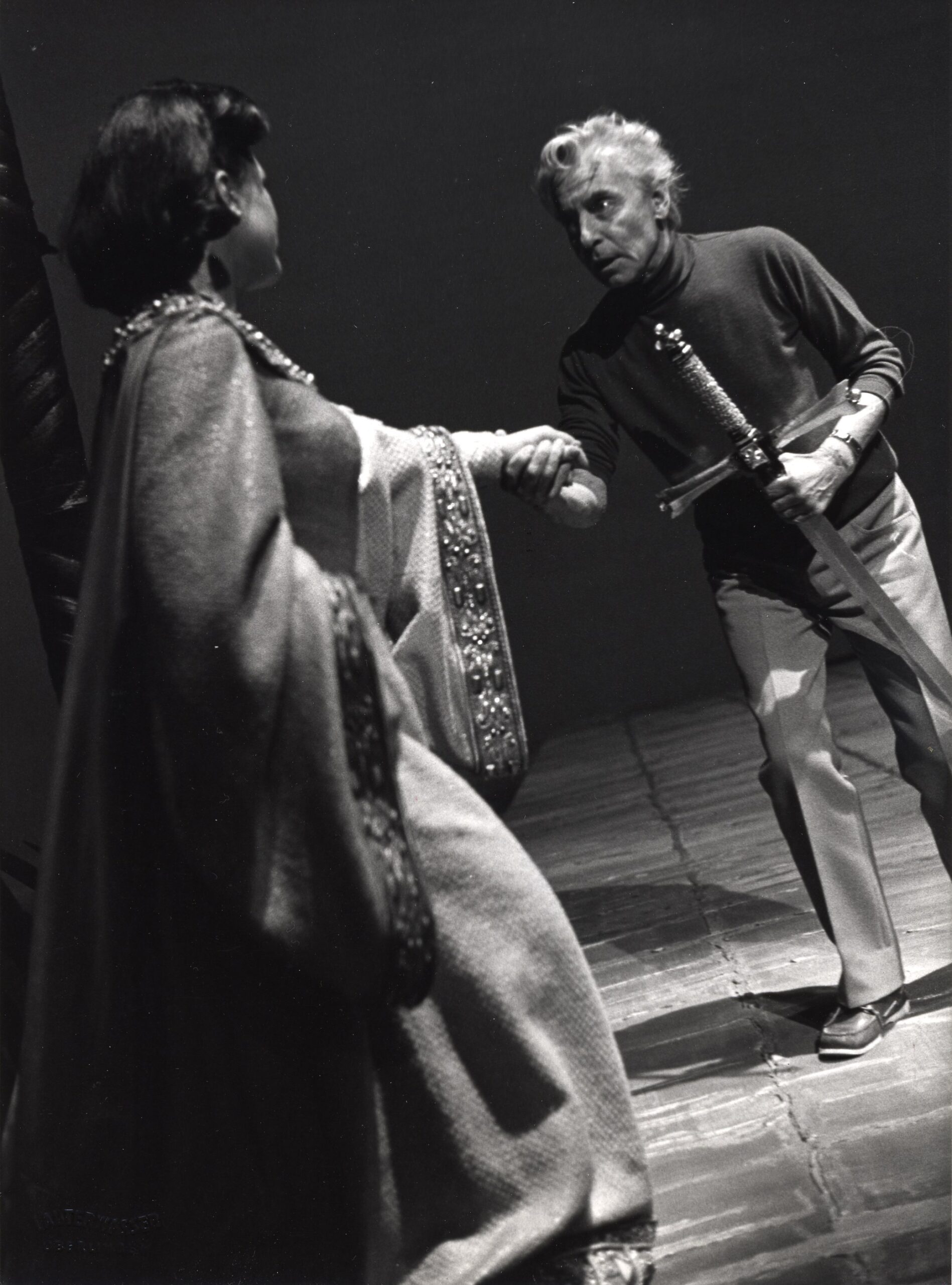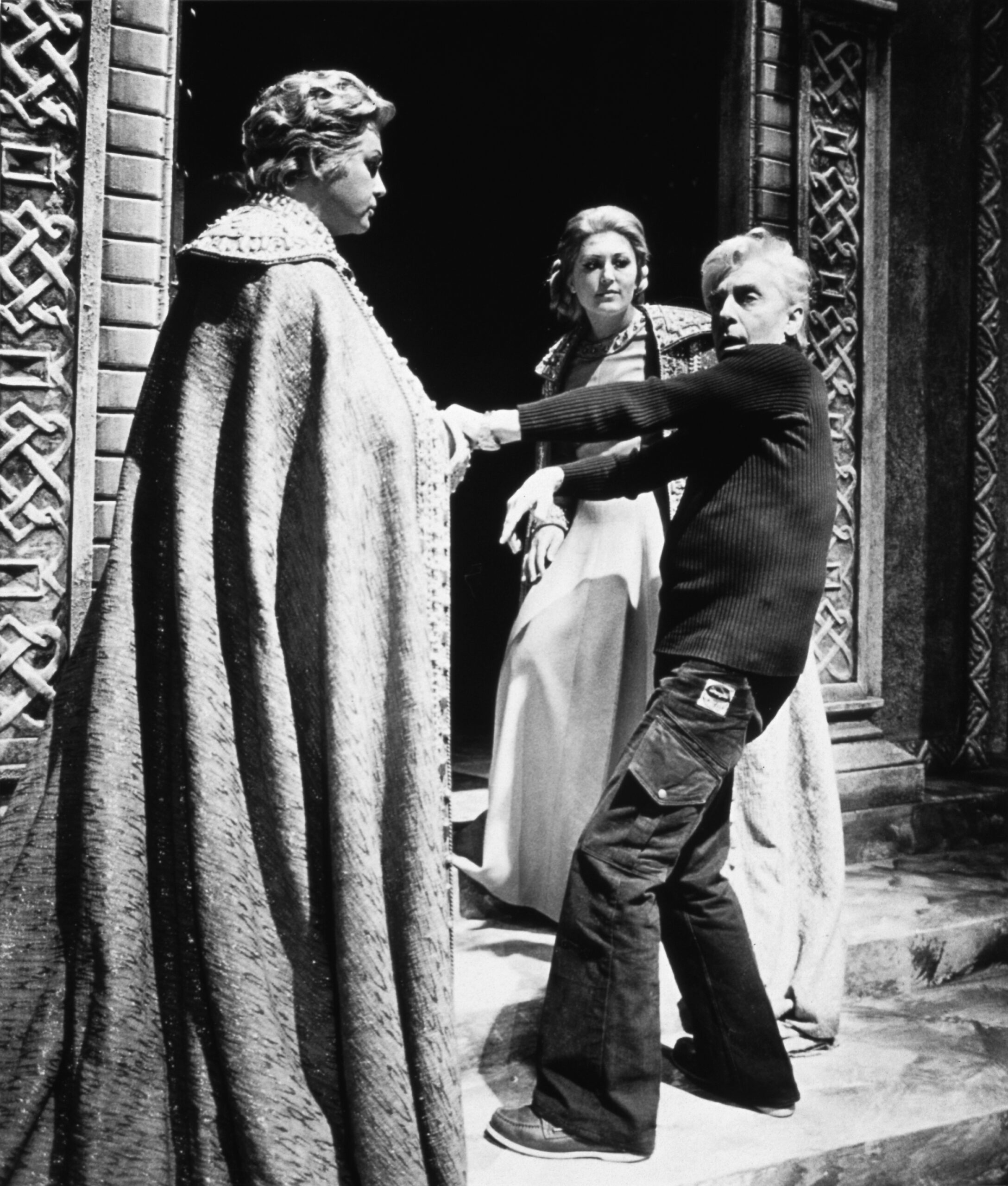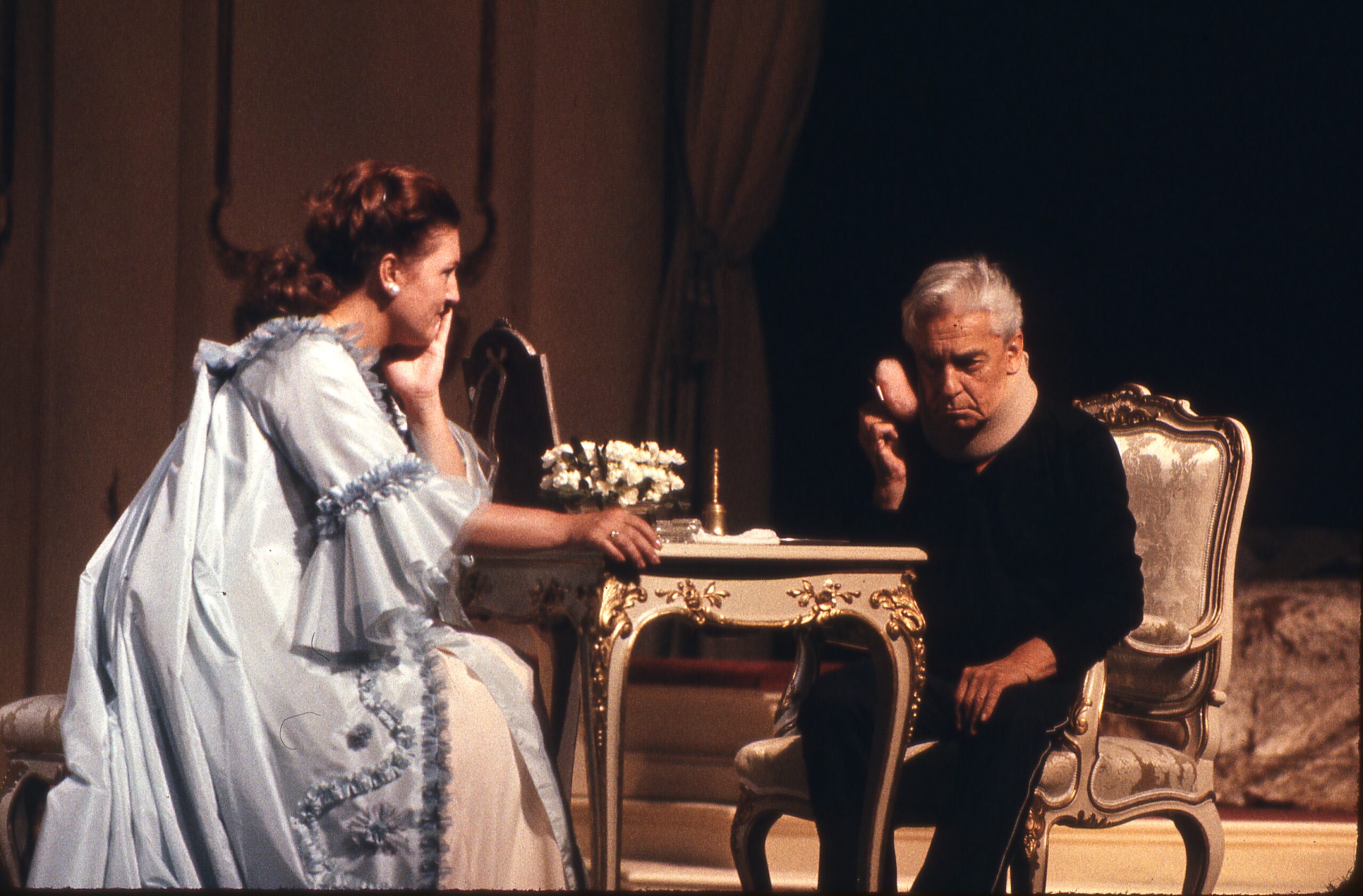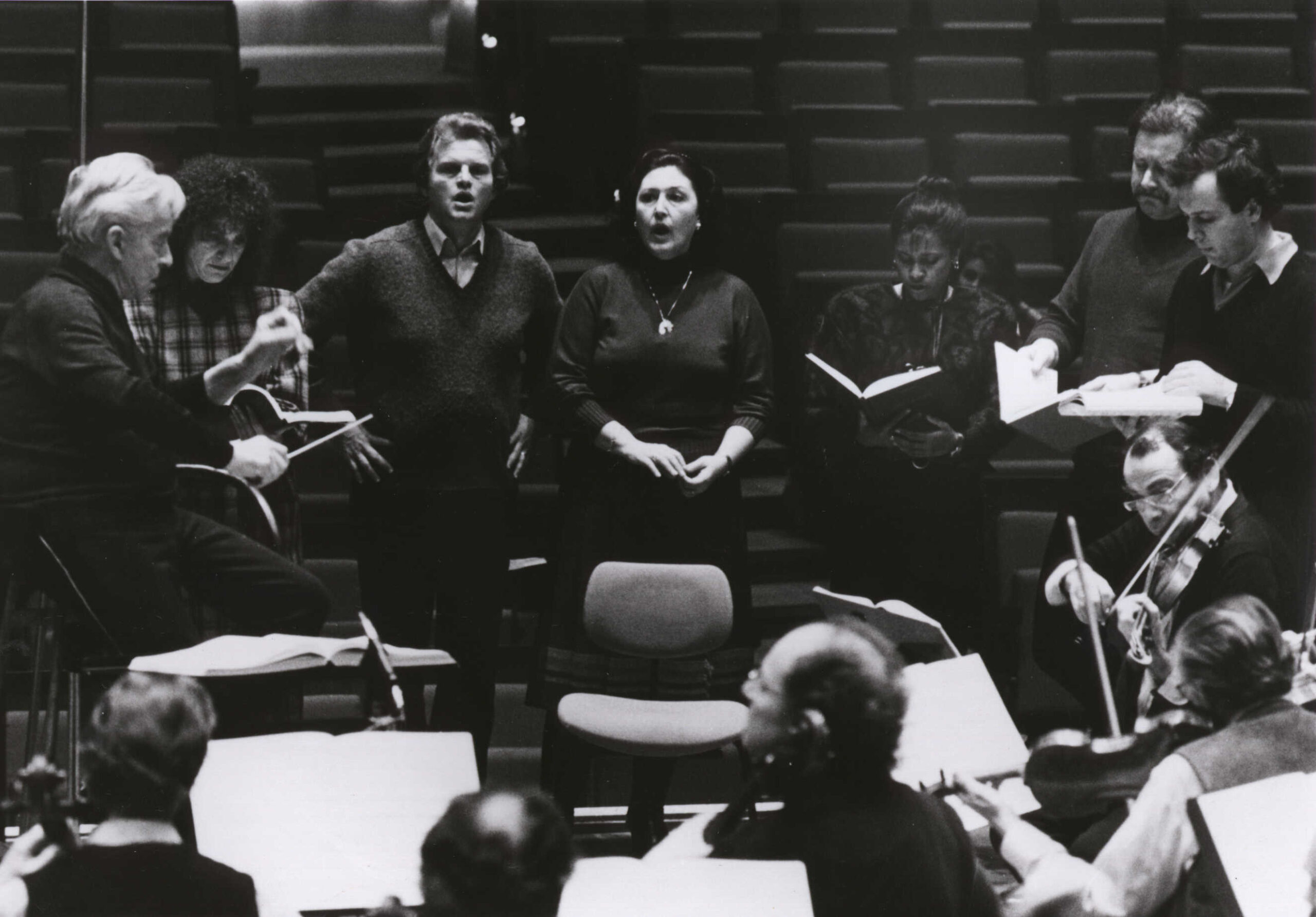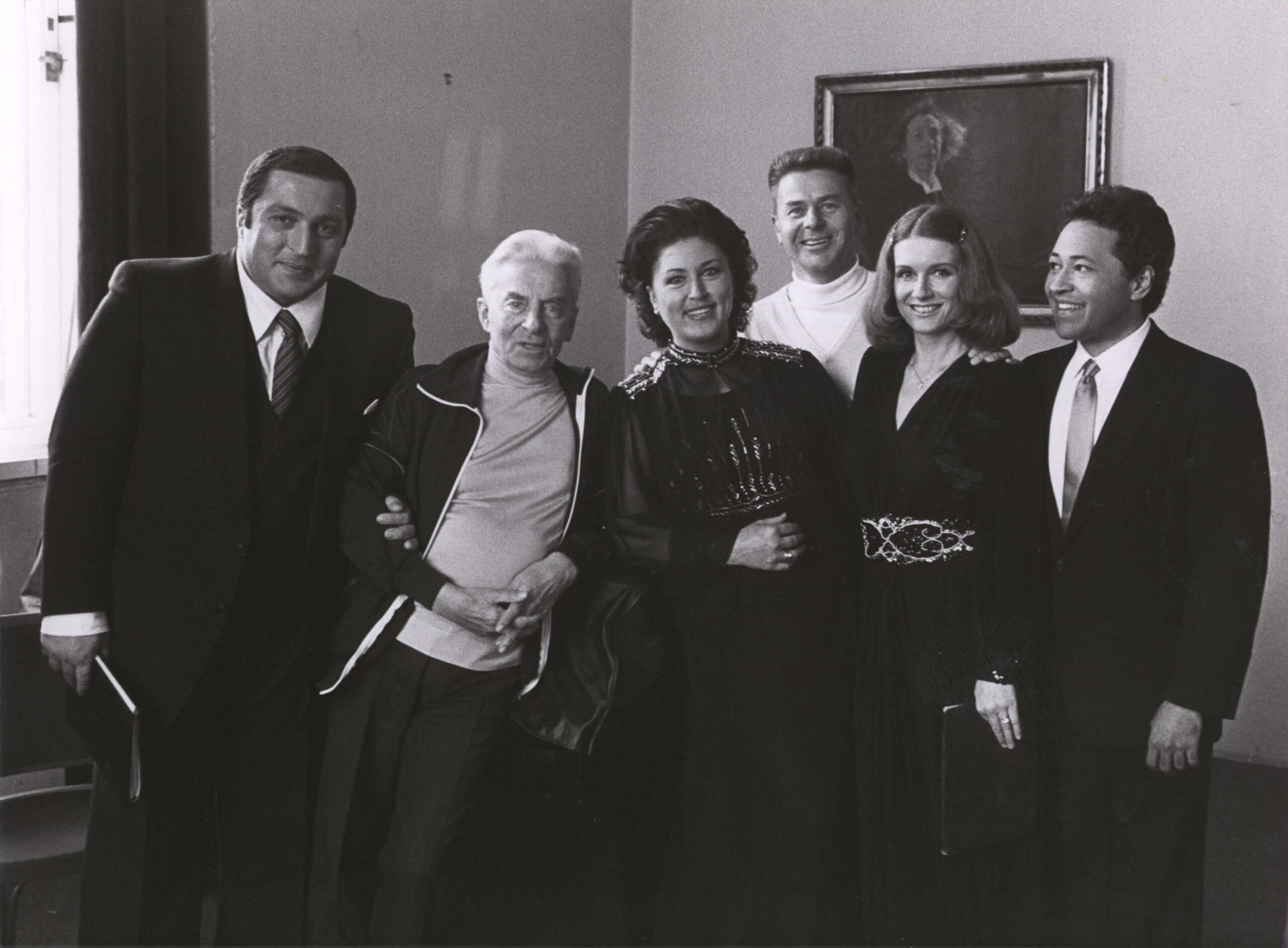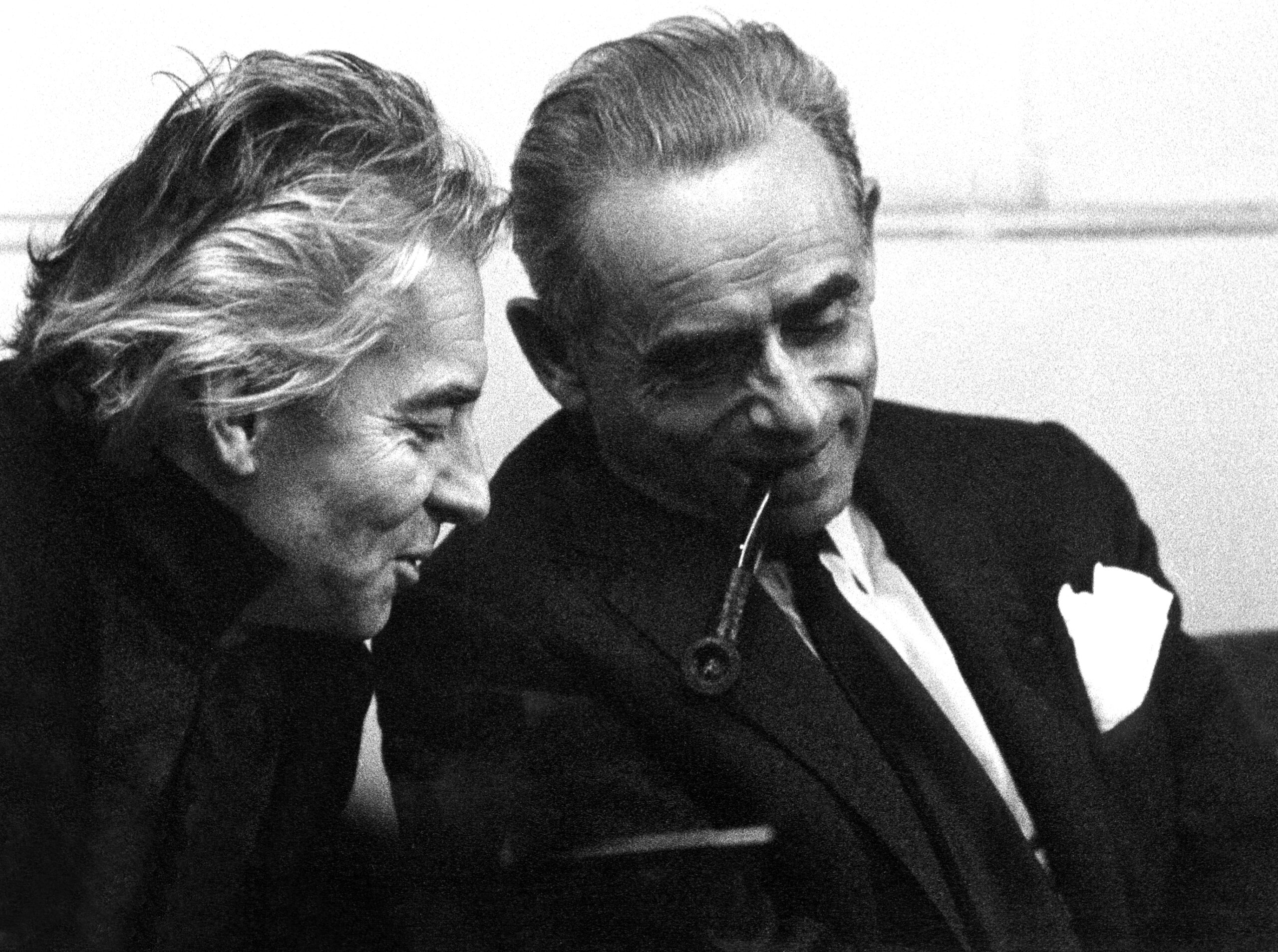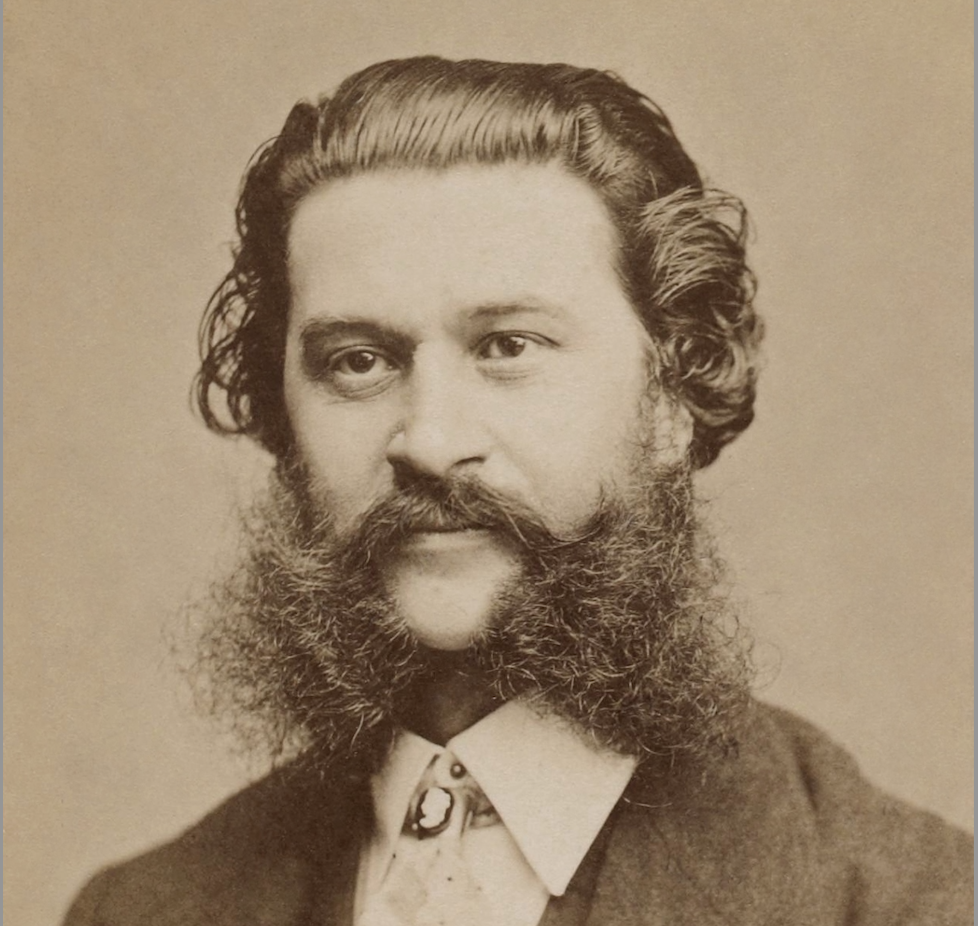03 February 2023
P.R. Jenkins
Karajan artists: Anna Tomowa-Sintow – the ultimate muse
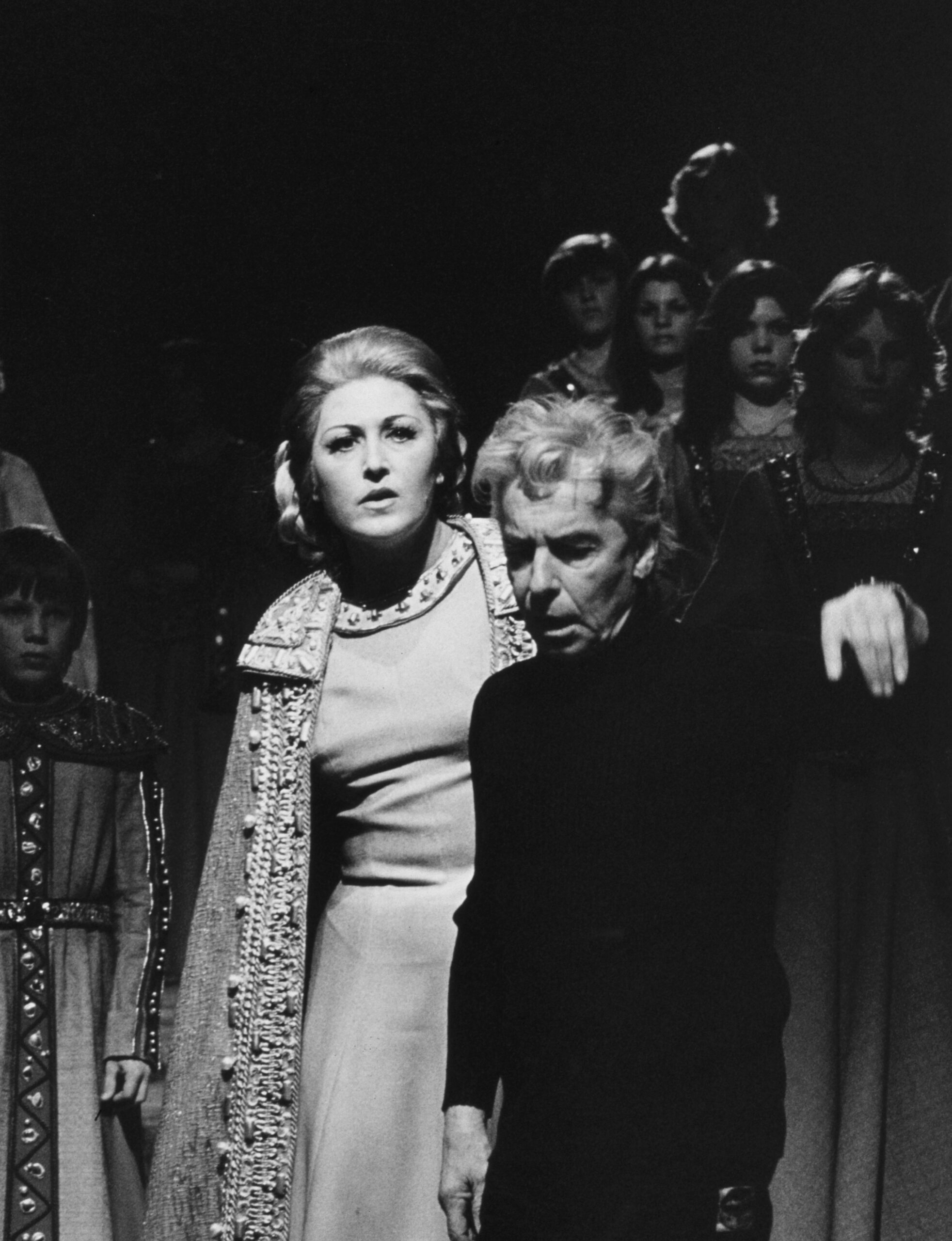
“In my youth in Bulgaria and in my student years, Herbert von Karajan was the incarnation of a god-like personality on the rostrum”
Anna Tomowa-Sintow
Anna Tomowa-Sintow was definitely a vocal muse in Karajan’s last fifteen years and appeared in some of his most important projects for the stage or in the studio. Tomowa-Sintow (b. 1941) grew up in Bulgaria and studied there. Starting in 1967, she performed in Leipzig and Berlin and six years later auditioned for Karajan’s production (and world premiere) of “De temporum fine comoedia” by Carl Orff. In an interview with our colleague Julia Binek in 2021, she described this first encounter.
“The audition took place at the Philharmonie. I sang ‘Pace, pace’ from ‘La forza del destino’. He stood up, came to me and said: ‘At last, we have met. I’m very glad!’”
Tomowa-Sintow was one of nine young sopranos in Orff’s work. After the last performance, Karajan invited all the nine singers for another audition because he was looking for a soprano for Bach’s Magnificat in the following winter. Tomowa-Sintow recalled:
“At 4 o’clock, Herr von Karajan came in. He remembered my first audition in Berlin. I started to sing and after two bars he said: ‘Yes, this is exactly what I was looking for.’”
Listen to the live recording here.
Elisabeth Schwarzkopf, although a bit offended by Karajan describing his former “Rosenkavalier” cast as “gaslight”, gave Richard Osborne her impression of her successor as Marschallin: “What Karajan discovered in Anna was a kind of vocal beauty that is now almost extinct, but which could still occasionally be found in unspoiled young singers from Eastern Europe where Anna herself came from. It is to do with the almost vanished art of pianissimo singing, with the ability to create that special ‘hanging (schwebend)’ tone.”
“I owe him everything.”
Anna Tomowa-Sintow about Karajan
After the two Bach concerts, Karajan’s collaboration with Tomowa-Sintow was interrupted for more than 18 months and her appearance at the 1975 Salzburg Festival in Verdi’s “Don Carlo” was only in a small part (the voice from heaven). A few weeks later, Karajan chose her for his second studio recording of Mozart’s Requiem and concerts with Mozart’s “Coronation Mass” and Bruckner’s Te Deum. It is obvious that Karajan valued Tomowa-Sintow especially for her interpretations of sacred works. Over the years, they also performed and recorded Bach’s St Matthew Passion, Haydn’s “Creation”, Beethoven’s Ninth and Missa Solemnis and the Requiems by Verdi and Brahms. Therefore, it is no surprise that Tomowa-Sintow was the soprano Karajan designated for his own funeral requiem in 1989 where she performed the Mozart Requiem under the baton of Riccardo Muti.
Tomowa-Sintow’s first main part in a Karajan opera production was Elsa in his 1976 “Lohengrin” at the Salzburg Easter Festival, a production that was repeated in 1984 with Peter Hofmann.
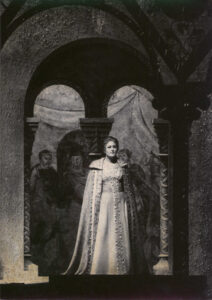
Also in 1976, she appeared as the Figaro Countess for the first time with Karajan, a part they recorded in the studio two years later and performed during Karajan’s sensational return to the Vienna State Opera in 1977/78. In 1980, Tomowa-Sintow took part in Karajan’s first digital recording of “The Magic Flute”. Together with Agnes Baltsa and Hanna Schwarz, she was one of the three ladies. Being already a well-known singer at that time, it was a favour she did to Karajan.
“Thanks to Karajan and Böhm, I was able to sing Mozart not in an instrumental way but with a human touch in my voice. Mozart’s music offers so many feelings and emotional varieties that you have to sing with your soul and not only produce a clear structure. You need personality and soul.”
Anna Tomowa-Sintow in 2016
New Year’s Eve 1980 and the day before brought Karajan’s and Tomowa-Sintow’s first joint commitment with the composer who was the focus of their activities in the following five years – Richard Strauss. In this concert in Berlin, they interpreted his famous “Four Last Songs”, a work Karajan hadn’t performed in concert since 1964 (with Elisabeth Schwarzkopf). Up to 1985, they performed it five more times and recorded it in the studio together with some more Strauss lieder and the final monologue from “Capriccio”. At that time, another major project was already history. “Der Rosenkavalier”, Karajan’s remake of his 1960 Salzburg production in 1983 and 1984, was probably Tomowa-Sintow’s most prestigious role in her collaboration with the maestro.
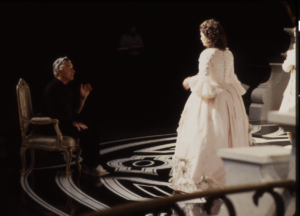
“Of course, it was Herr von Karajan who gave the significant impetus to me that I should sing a lot of German parts, especially Strauss.”
Anna Tomowa-Sintow in 1997
He praised her singing in interviews: “Toscanini never had a voice like hers to disposal. She hits the high C early at 9 in the morning. […] These three voices – Tomowa-Sintow, Perry, Baltsa – are really incredible. Even the famous Elisabeth Schwarzkopf doesn’t reach Tomowa-Sintow. She really is a discovery. When I listened to her the first time, I thought: ‘This woman has to be encouraged.’”
Karajan’s and Tomowa-Sintow’s final major opera project was one of his last ever. Mozart’s “Don Giovanni” was recorded in the studio in 1985. The first live performance in Salzburg was only two years later and then repeated ten times up to the following year. Tomowa-Sintow was Donna Anna, one of her favourite roles. Karajan’s and Tomowa-Sintow’s last concert on 27 March 1989 with Verdi’s Requiem was also his last with the Berlin Philharmonic and his second-last ever.
We’ve prepared playlists with Karajan and Anna Tomowa-Sintow. Listen to them here.
— P.R. JenkinsRichard Osborne: “Karajan. A Life in Music” Chatto & Windus, London. 1998
Anna Tomowa-Sintow – Da Capo – Interview with August Everding 27 February 1997, 3sat
Interview Anna Tomowa-Sintow in BR-Klassik, 21.09.2016 von Annika Täuschel
Roger Vaughan: “Herbert von Karajan – A Biographical Portrait” Weidenfeld & Nicolson Limited, London. 1986
